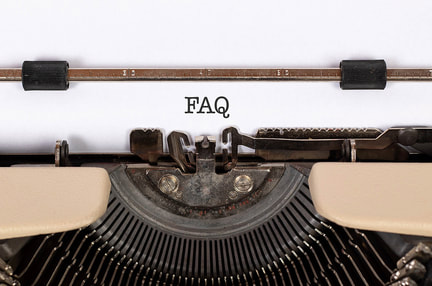How much can I borrow?
The amount you can borrow will vary depending on your individual circumstances. Our term loan allows you to borrow up to 95% of the value of a property in some situations. However, you may have to pay Lenders Mortgage Insurance if your loan amount is more than 80% of the value of your property.
What is lenders mortgage insurance (LMI)?
Lenders Mortgage Insurance (LMI) covers the lender in the event of the borrower defaulting on their loan. If the property is subsequently sold, and the amount from the sale is insufficient to pay off the loan in full, this insurance will cover the lender for the shortfall.
Will I need to pay lenders mortgage insurance (LMI)?
The size of your home deposit normally determines whether you will have to pay lenders’ mortgage insurance or not. If you have a 20% deposit or more you normally won’t have to pay mortgage insurance. It’s also important to remember that mortgage insurance protects the lender, not the borrower. If a borrower wants to safeguard themselves, they can take out mortgage protection insurance separately.
Am I eligible for the First Home Owners Grant (FHOG)?
Eligibility for the First Home Owner Grant (FHOG) is determined among other factors, on whether you are buying an established property, or a brand new property (off the plan, or never previously occupied), and whether you or your partner has owned a property previously. Notable that you must also be buying the home to live in, rather than as an investment property, and the entitlement does vary from state to state.
To find out more details, speak to your finance specialist at Get Smart Financial, or you can visit the State Revenue Office website of your local State Government for more information.
Fixed or Variable loan?
If you decide to fix your home loan, you should be focused on achieving certainty in terms of your monthly loan repayment rather than hoping to gain from future interest rate movements. This type of certainty can be important if you have a limited income or are an investor. For someone who wants to combine ‘certainty’ and ‘flexibility’, a split loan may be a good option. This allows you to fix part of your loan and keep part of it at a variable rate.
What sort of documents do I need to apply for a Home Loan?
Account statements, pay slips, tax returns, credit card balances are the sort of thing you’ll need for applying for a standard loan. Proof of income requirements will vary according to whether you are a wage earner (normally recent payslips or Group Certificates) or self-employed (normally two years’ tax returns). For personal identification, such things as driver’s licenses, rates notices, birth certificates, passports are all acceptable.
What is LVR?
LVR stands for Loan to Valuation Ratio. This is the measure of the amount of the loan compared to the value of the property. For example, if you have borrowed $160,000 and your property is valued at $200,000, the LVR would be 80%.
What is the best budgeting tool you could recommend, and where can I find it?
The budgeting tool that we recommend to clients, is the tool you can download on the government's moneysmart website, which is not only comprehensive, but also free! You can find it here: https://moneysmart.gov.au/budgeting
The amount you can borrow will vary depending on your individual circumstances. Our term loan allows you to borrow up to 95% of the value of a property in some situations. However, you may have to pay Lenders Mortgage Insurance if your loan amount is more than 80% of the value of your property.
What is lenders mortgage insurance (LMI)?
Lenders Mortgage Insurance (LMI) covers the lender in the event of the borrower defaulting on their loan. If the property is subsequently sold, and the amount from the sale is insufficient to pay off the loan in full, this insurance will cover the lender for the shortfall.
Will I need to pay lenders mortgage insurance (LMI)?
The size of your home deposit normally determines whether you will have to pay lenders’ mortgage insurance or not. If you have a 20% deposit or more you normally won’t have to pay mortgage insurance. It’s also important to remember that mortgage insurance protects the lender, not the borrower. If a borrower wants to safeguard themselves, they can take out mortgage protection insurance separately.
Am I eligible for the First Home Owners Grant (FHOG)?
Eligibility for the First Home Owner Grant (FHOG) is determined among other factors, on whether you are buying an established property, or a brand new property (off the plan, or never previously occupied), and whether you or your partner has owned a property previously. Notable that you must also be buying the home to live in, rather than as an investment property, and the entitlement does vary from state to state.
To find out more details, speak to your finance specialist at Get Smart Financial, or you can visit the State Revenue Office website of your local State Government for more information.
Fixed or Variable loan?
If you decide to fix your home loan, you should be focused on achieving certainty in terms of your monthly loan repayment rather than hoping to gain from future interest rate movements. This type of certainty can be important if you have a limited income or are an investor. For someone who wants to combine ‘certainty’ and ‘flexibility’, a split loan may be a good option. This allows you to fix part of your loan and keep part of it at a variable rate.
What sort of documents do I need to apply for a Home Loan?
Account statements, pay slips, tax returns, credit card balances are the sort of thing you’ll need for applying for a standard loan. Proof of income requirements will vary according to whether you are a wage earner (normally recent payslips or Group Certificates) or self-employed (normally two years’ tax returns). For personal identification, such things as driver’s licenses, rates notices, birth certificates, passports are all acceptable.
What is LVR?
LVR stands for Loan to Valuation Ratio. This is the measure of the amount of the loan compared to the value of the property. For example, if you have borrowed $160,000 and your property is valued at $200,000, the LVR would be 80%.
What is the best budgeting tool you could recommend, and where can I find it?
The budgeting tool that we recommend to clients, is the tool you can download on the government's moneysmart website, which is not only comprehensive, but also free! You can find it here: https://moneysmart.gov.au/budgeting


